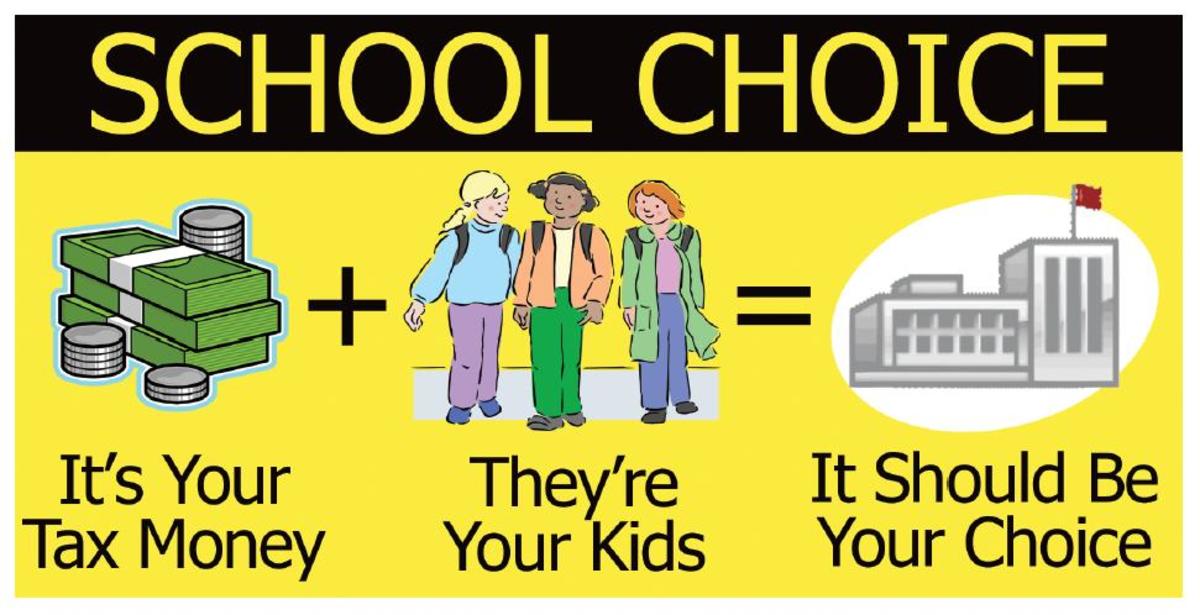Whose Schools Are They Anyway?
Fiscally Challenged School Districts Face Tough Decisions
The economic state of the country as a whole currently is being reflected in the financial crises facing many school districts. In my area alone, three major school districts are facing no-win situations which require major cutbacks in programs and staff. The dialogue has been ongoing for months, but as "crunch time" draws near (i.e., 2011-2012 budgets must be adopted), several things have become clear: no one is going to be happy with the "solutions."
The first of the solutions proposed by the three largest local school boards near my community (we'll call them Districts A,B, and E) was an appeal to their teachers to agree to a wage freeze. This for the most part was not well received by the teachers for various reasons. For one thing, teachers in District A, a large, inner city district were disturbed by the fact that a wage freeze would not necessarily guarantee job security. Teachers in District E offered a semi-giveback situation that included provisions for retirement incentives, among other things. The school board showed no gratitude for the teachers' offer. District A had, in December, 2010, negotiated a new contract that gave its teachers generous raises. This school board might not have foreseen the education cuts announced by Pennsylvania's Governor Corbett shortly thereafter, but they certainly were well aware of the financial woes resulting from some "swaps" deals gone bad that had been plaguing the district for several years. I'm sure those teachers thought, "Wait a minute. Why would the district agree to a generous contract one minute and then turn around just as quickly and expect us to agree to a wage freeze?" After all, who was responsible for that contract? During negotiations of any kind, there are people sitting on both sides of the table. Who made the decision to put the ball in the a court where it probably didn't belong?
Realistically, the financial situations in these districts are so serious that wage freezes alone would not be enough to handle the problem. All three large districts in my area (and many others around the country) are considering major program cuts in addition to staff cuts. Some districts in Pennsylvania already have announced that all-day kindergarten classes will be cut back to a half day, a move that gives the concept of "retro" new meaning. Current all-day kindergarten programs, after all, have done far more for students' education than their half-day, babysitting-oriented forerunners. Sweeping program cuts are also in the works. District A, for example, already has announced that all related arts programs (art, music, phys ed) will be cut from the elementary curriculum (rumor has it that teachers will start their day earlier than the students in order to get their contract-mandated preparation periods) , and Spanish will be the only foreign language offered at the high school level. The same district also has announced major cuts in high school Honors and AP programs for the 2011-2012 school year. In fact, the superintendent of District A originally proposed putting all Honors and AP students at a separate facility and encouraging them to take courses for college credit at local colleges. The idea of the "separate facility" was defeated, however, by angry public outcry, much of which came from the students who would have been affected. Most of the other cuts the district threatened to implement, including cutting 247 staff members, have now been announced as realities. (None of those staff members, interestingly enough, are administrators.)

.... and what about the clientele?
Just this week, a local newspaper announced that, in addition to considering cutting more than 200 staff positions and school programs, including a school for at-risk fifth and sixth graders, District E is taking a hard look at eliminating all sports. This reinforces the gravity of the financial situation in a district that has particularly prided itself on its football and wrestling programs. (My husband recently spoke with a high school student from that district. When asked how he felt about the possible elimination of sports, he answered, "I'd rather see sports go than foreign languages.") Not only that; it seems that there is a very real possibility that the public library, which is 90% supported by the school district, will close. All of this raises the questions, "Why didn't someone realize something was amiss way before it came to this sorry pass in 2011?" and "Who are the 'clients' in this Big Business which school districts have become?" The last time I looked, the clients were supposed to be the students. Currently, though, everyone else seems to be claiming 'client' or at the very least, "victim" status: angry taxpayers, distressed teachers, woebegone administrators, and desperate school boards. In fact, the students seem to have become pawns in a game in which they used to be the major players.
If programs like Head Start and Spark, which are geared to pre-school at-risk kids, are eliminated due to "financial necessity, as threatened, the advances that have occurred in pre-school education in the past thirty or forty years will be erased. The same principle applies to the return to half-day kindergarten. Furthermore, If related arts courses such as art, music, consumer science, and phys ed disappear at the elementary, middle, and high school levels, what remains for those students who are gifted in or at the very least inspired by areas other than academics? In addition to elimination of teaching positions, cuts in support staff such as kindergarten and special education aides would be devastating. (Imagine the very real possibility of a kindergarten class of twenty-five or a special education class of students with various disabilities without an aide.) Our local District B also has been taking a hard look at eliminating the middle school team concept , which has held our middle schools together and made them strong since their inception almost thirty years ago. The elimination of foreign languages, among other subjects, in the high schools certainly would strike a blow to instilling cultural literacy in our young people. Sadly, the list goes on .
What happens now?
Are there any solutions to preventing some of the drastic cuts in staff and programs facing our country? Pennsylvania's governor certainly shoulders much of the blame for the financial woes in his state, but the Blame Game won't balance the budget. District A, for one, has already announced that these cuts will be a reality in the coming school year. What about those districts where the final budgets have not yet been put into place? No one solution could possibly make up for the huge deficits many districts face, but a compromise situation involving cuts in many areas certainly should be considered. For one thing, the top-heavy central administration in many districts should be pared to the minimum number of people realistically needed to run a school district. Perhaps financially challenged districts should take a step forward and look at eliminating some superfluous positions that have little to do with educating students. (District A, for example, announced that staff cuts of approximately 247 positions will include no (0) administrators, the logic being that the administrators agreed to a wage freeze. That's a start, but why any district needs 41 central administrators to begin with escapes logic.) Another novel approach to alleviating the financial crunch would be to cut back on funding for test prep materials designed to inundate students with various strategies for success on state-mandated testing. (Some would say that success in this case refers to schools rather than students.) This not only would save money but also would afford far more class time for fostering knowledge and skills that actually would be useful to students throughout their lives. Next, speaking of "knowledge and skills," if program cuts are necessary, why not cut some of those nebulous high school courses where movies are the order of the day, every day? Finally, if the situation is indeed as dire as many districts claim, perhaps the teachers could consider a wage freeze, if only for a year. (I know; as a former teacher, I'm not supposed to offer that suggestion. Would I consider it? I certainly hope so, if it would mean the difference between cutting or keeping programs that benefit students.)
The bottom line, then, is this: if districts hope to retain any semblance of their original mission, many solutions need to be considered, and an atmosphere of compromise must exist. If this doesn't happen, a "well-rounded education" will become a thing of the past. Maybe each student will be given an e-reader and instructions on how to program curriculum apps at home. Scary, isn't it?









